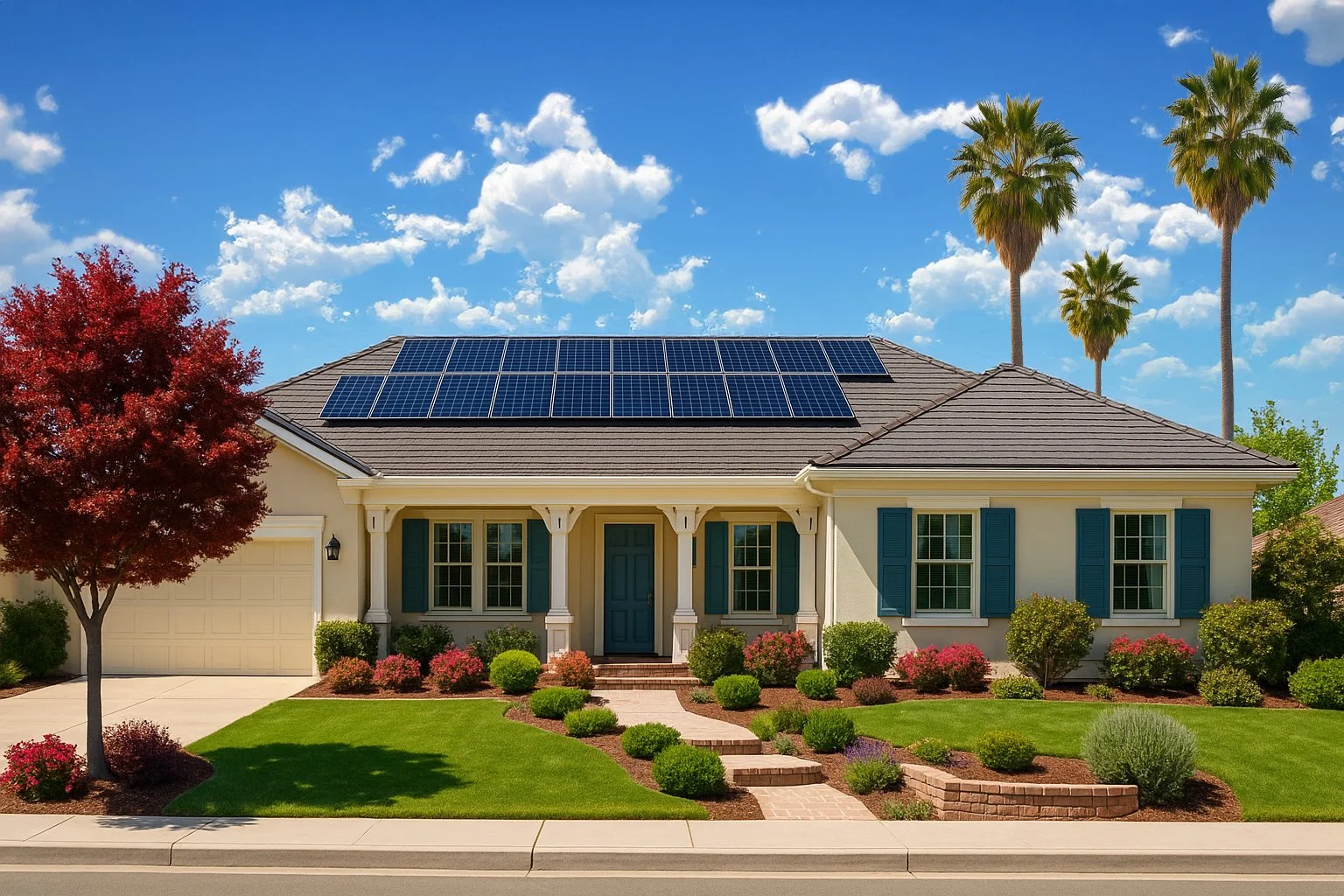Is Solar My Best Option to Lower My Electricity Bill?
Not sure if solar makes sense for your home? This is exactly the kind of setup where it does—decent roof space, high energy use, and long-term plans to stay put.
Let’s say you’ve been staring at another brutal PG&E bill and wondering: Is solar really worth it? Or maybe more honestly: Am I the kind of person it’s worth it for?
Great question—and the answer depends on more than just the size of your roof or whether there’s a rebate available this year.
Here’s how to think it through.
1. How Much Electricity Do You Use?
If your electric bills are consistently above $150/month, you’re probably a strong candidate for solar. The more energy you use—especially during peak afternoon hours—the more you stand to save by generating your own.
Got a hot tub, pool pump, or kids who never turn off the lights? Solar might start paying you back faster than you think.
On the other hand, if your bills are low because you live small, use little A/C, or already have a super efficient home, solar can still be worth it—but the payback period will be longer.
2. What Makes a Good Home for Solar?
You don’t need a south-facing, perfect roof anymore—but a few things still matter:
Roof orientation & shading: East, west, or south roofs with minimal tree shade are ideal.
Roof age: If your roof needs replacing in the next 5 years, do that first (or bundle it with your solar install).
Space: A sprawling single-story home usually has more surface area for panels than a compact two-story.
Still not sure? A good solar company (hi 👋) can design a system that works around vents, skylights, and other obstructions.
3. What About Batteries?
Home batteries like the Tesla Powerwall don’t save you money directly under NEM 3.0—but they can help you:
Maximize your self-consumption
Avoid expensive evening rates
Keep the lights on during outages
If your priority is lowering your bill, solar panels alone will usually get you there faster. But if you’re in a blackout-prone area or looking to future-proof your home, a battery is worth considering.
4. Should I Upgrade My Insulation or HVAC First?
Great question. Energy efficiency upgrades like:
Duct sealing
Better insulation
Heat pump water heaters
Smart thermostats
…can help you use less electricity overall, which means you can install a smaller (cheaper) solar system.
That said, many homeowners do it the other way around: Go solar first to start saving, then use those savings to reinvest in other upgrades.
No wrong answer—just make sure your solar installer knows your plans so they can size your system accordingly.
How Does NEM 3.0 Affect My Savings?
Under NEM 3.0, California solar customers get less money for sending extra energy back to the grid.
That means:
It’s more important than ever to use your own solar power rather than export it
A battery can help with that (see above)
Your system should be sized to match your usage, not overproduce
Bottom line? You’re still saving—just in a different way. Instead of earning credit, you’re avoiding high time-of-use charges by making your own power when it matters most.
So… Is Solar Your Best Option?
If you:
✅ Own your home
✅ Have decent roof space
✅ Pay over $150/month for electricity
✅ Plan to stay put for a few years
…then yes—solar is still one of the smartest ways to cut your energy costs, even in the post-rebate, NEM 3.0 era.
Want a no-pressure look at your options? Reach out to the team at Viva Energy. We’ll walk you through what makes sense for your home—and tell you honestly if solar isn’t the right fit.
References
PG&E: Time-of-Use Rate Plans
https://www.pge.com/en_US/residential/rate-plans/rate-plan-options/time-of-use-base-plan/time-of-use-base-plan.pageCPUC: NEM 3.0 Overview
https://www.cpuc.ca.gov/industries-and-topics/electrical-energy/demand-side-management/net-energy-meteringEnergySage: Is My Home Good for Solar Energy?
https://news.energysage.com/is-my-home-good-for-solar-energy/U.S. Department of Energy: Energy Efficiency Upgrades
https://www.energy.gov/energysaver/energy-efficiencyTesla: Powerwall Savings Calculator
https://www.tesla.com/support/energy/powerwall/own/savings

